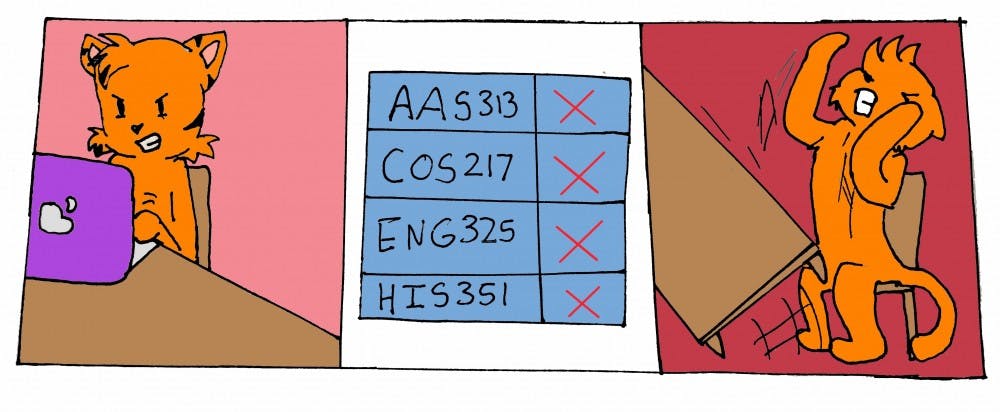I’ve never been lucky with course registration. Most of my experiences have been stressful and chaotic, like when I initially got into zero of four desired classes in my sophomore fall, or when the neuroscience department only offered one class, at one specific time, in one specific semester, to fulfill a requirement.
This past fall, however, was the worst course registration of them all. Not because I was stressed about getting a certain class or fulfilling a requirement, but because it very suddenly hit me: these were the last two classes I would ever take at Princeton.
It would have been easy to fall into the trap. I could’ve taken the easiest possible classes, especially since thesis deadlines are fast approaching, but this seemed like a waste of the last two course credits I would ever obtain at Princeton. After all, no one came to Princeton because they thought it would be easy. Instead, I chose two courses that are out of my comfort zone, rather thought-provoking, and in areas that I truly know nothing about.
And I am so happy that I did. So much so that I hope that every student at the University takes the same approach.
It’s true that many departmental requirements, though necessary for a comprehensive understanding of the field, are not as fascinating or groundbreaking as one would hope for a Princeton class. However, I urge students to use their departmental electives wisely and choose the courses in your field that make you glad you declared it. Maybe this means sacrificing an A for the sake of taking a difficult graduate level course or a small seminar on a niche topic.
Or, when there is an opportunity to take a course outside of your department, perhaps you should veer away from taking courses specifically because they are recognized as “easy A’s” throughout the University and instead choose a course on an entirely unknown topic. Ultimately, what you gain from courses that are interesting and challenging pays off more than taking a class that is easy but boring.
The second semester of senior year represents the end of a chapter, and the start of a new one. This is exciting — don’t get me wrong — but also signals a dramatic change in opportunity. Most of us will never be in an environment where you can learn about Mohandas Gandhi on the same day that you learn about the basal ganglia, or simply, where you can be challenged to grow and learn in the same way.
Though there is a lot to learn in a graduate program or a new job, there aren’t many opportunities to learn about something relatively irrelevant but fascinating or something entirely out of your comfort zone. I hope that students at the University take their last classes at Princeton as opportunities to challenge themselves and learn something new, not just opportunities to boost one’s GPA.
Morgan Lucey is a senior neuroscience major from Scottsdale, Ariz. She can be reached at mslucey@princeton.edu.









